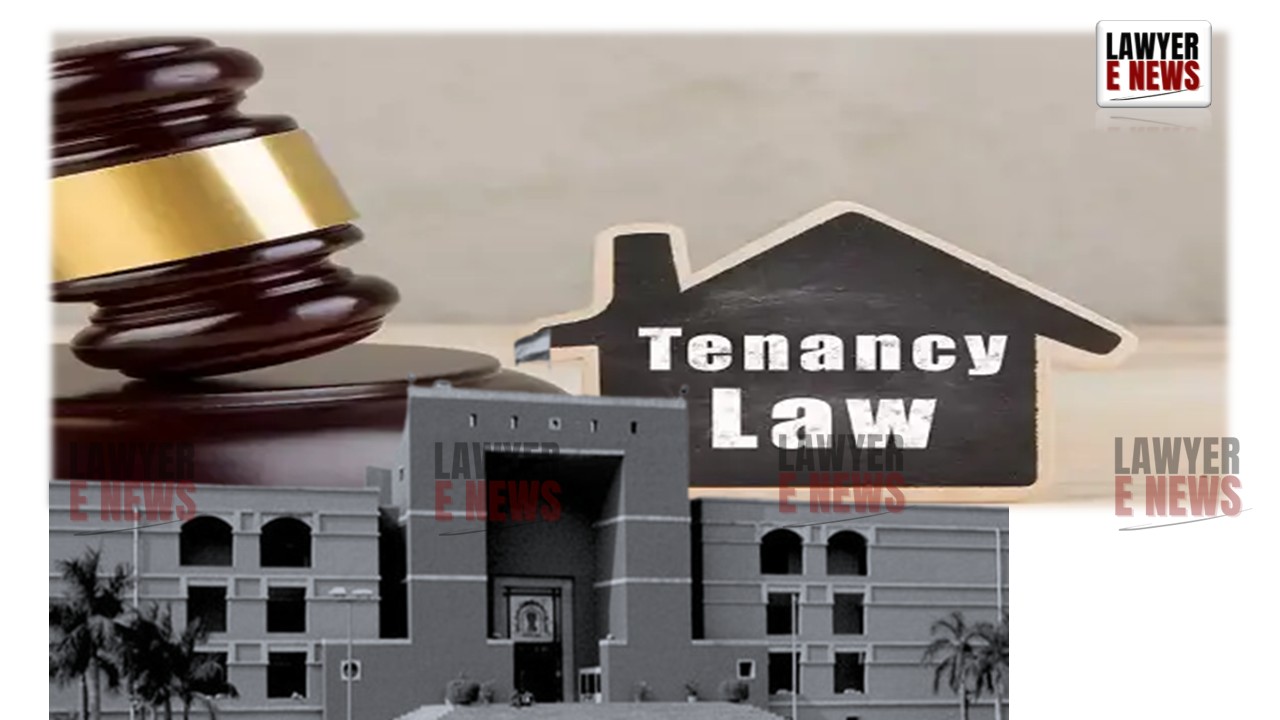-
by Admin
18 February 2026 2:25 PM



“Respondents who supported the tenant in earlier litigation are estopped from now challenging the same – doctrine of approbate and reprobate applies” – In a detailed judgment Gujarat High Court set aside an order of the Gujarat Revenue Tribunal (GRT) which had denied tenant status to the petitioners regarding land bearing Block No. 730 in Vadodara. Justice Nikhil S. Kariel restored the orders of the Mamlatdar and Deputy Collector, which had previously recognized the petitioners as tenants under the Gujarat Tenancy and Agricultural Lands Act, 1948.
The Court severely criticized the conduct of the private respondents (heirs of the original landlord), stating they were barred from denying the petitioners' tenancy after previously supporting their case. Relying on principles of estoppel, acquiescence, and the doctrine of approbate and reprobate, the Court ruled in favor of the petitioners’ long-standing tenancy claim.
The dispute relates to agricultural land situated at Village Bil, District Vadodara, comprising Block Nos. 730 and 731. The petitioners’ names were mutated as cultivators in the revenue records as far back as 1980, and proceedings under Section 32(G) of the Tenancy Act culminated in an order in 1991 declaring them as tenants and fixing the purchase price, which was fully paid.
However, nearly a decade later, challenges were raised against this order. The litigation took a complex course through various appeals, remands, and revisions, culminating in a controversial GRT order dated 04.01.2017, which declared that the petitioners were not tenants of Block No. 730—while curiously affirming their tenancy over adjacent Block No. 731.
This inconsistency formed the crux of the present writ petition, with the petitioners arguing that the respondents had initially supported their claim, including through a sworn affidavit filed in 2008, and could not now reverse their stand.
Justice Nikhil S. Kariel found the reversal of stance by the private respondents (successors of the original landlord) legally impermissible. He remarked:
“Respondents who had earlier not only not challenged the tenant’s status but supported it unequivocally—cannot now seek to deny the same... Such conduct is hit by the doctrine of approbate and reprobate.”
The Court emphasized that entry no. 2301, which had mutated the petitioners’ names as cultivators in 1980, had never been challenged by the landlord or her successors.
It noted: “While an ambiguous submission was attempted... a perusal of the record clearly reveals that the principal order dated 26.12.1991 was never challenged by respondent no. 5 or her successors.”
On the contrary, in the 2008 affidavit filed by respondent no. 5 through her Power of Attorney, the landlord had confirmed:
“The petitioners were tilling the land since 1979–80 and I have no objection if they are declared tenants...”
This affirmation, the Court held, estopped the successors from taking an inconsistent position in subsequent litigation.
Justice Kariel was particularly critical of the attempt to argue fraud and impersonation retrospectively:
“This court does not find the explanation plausible—especially as no challenge was ever mounted to the affidavit or its effect at the relevant time.”
Further, the alleged sale of the disputed land during pendency of the writ petition to close relatives of the respondents was held to be a sham transaction, intended to frustrate the petition. The Court invoked Section 52 of the Transfer of Property Act, holding:
“Transfer pendente lite is void as against the rights of the petitioners. The transferees did not seek impleadment and will remain bound by the judgment.”
Allowing the writ petition, the Court restored the order of the Mamlatdar dated 28.02.2013 and the Deputy Collector dated 03.09.2015, and quashed the GRT’s contrary ruling dated 04.01.2017.
The Court ruled: “Once having supported the tenant’s rights through affidavits and submissions, the successors-in-interest of the landlord cannot seek to withdraw from such position. The impugned GRT order is untenable in law.”
This ruling is a powerful reaffirmation that litigants must maintain consistency and integrity in their stand before the courts. The Gujarat High Court not only safeguarded the rights of bona fide tenants under the Tenancy Act, but also upheld the principle that equity bars a party from playing both sides of the fence.
As Justice Kariel concluded: “Law does not permit a party to turn around and disown their own statements to suit shifting convenience—such conduct strikes at the root of justice and must be rebuked.”
Date of Decision: 17th April 2025
